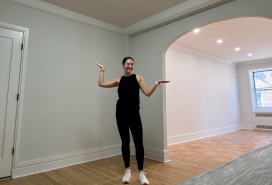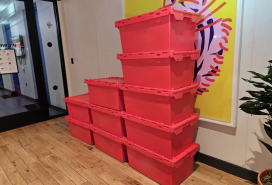Rent Coach: Co-op board wants my mortgage bank to approve my sublet

Q. My job was recently transferred to San Francisco, and I'm trying to rent out my co-op on the Upper East Side. My building allows subletting for up to two years, which would give me enough time to decide if I would return at some point or if I should sell it.
The broker I hired found a great tenant within a week, but when we reviewed the board package that needs to be submitted along with the sublet application, I was shocked to find out that I need a letter from my lender authorizing me to rent out the apartment.
Now I’m worried that I won’t be able to get it in time to keep this tenant’s application or that, even worse, I won’t be able to get it all!
I own the apartment, so why would I need my lender’s permission to rent it out if it's okay with my co-op?
A. Though they share many similar traits, every co-op board application is a bit different. Some are old, some are new, some are standard applications used by all of a management company’s clients, some were designed for the particular building in question, and some are extremely strict while others are relatively lax.
The board of directors has the authority to ask for whatever supporting documents they see fit to request so long as they are in compliance with the law and the co-op's by-laws and they do not overreach the authority that is laid out in the proprietary lease. In other words, your co-op most likely does have the authority to ask for a letter from the bank that is servicing your mortgage.
This is a not a common element of a board application, but it’s not unheard of either. When a shareholder seeks to pledge their shares in exchange for a loan (like taking out a mortgage), the co-op, shareholder, and lender enter into an agreement called an Aztec Recognition Agreement. This document primarily functions to subordinate the co-op’s interest in the shares effectively putting the lender in first position to collect on their loan in the case that the shareholder/borrower defaults. However, it also lays out the respective rights and obligations of the parties and includes notice provisions that obligate the co-op to inform the lender of certain events involving a shareholder (e.g. in the event of the shareholder’s default on her maintenance payments). It’s possible that your co-op’s standard Aztec agreement contains such notice provisions that obligate the co-op to inform lenders of any sublease applications. That could be why your co-op requires a letter from your lender acknowledging that they consent to your sublease.
It is important to understand how your lender will perceive this request. There are different types of mortgage products available on the market. Some are designed for investors (landlords), some are designed for vacation or second homes, but most are designed to finance the purchase of a primary residence.
The latter typically have the lowest interest rates and most favorable terms as the borrowers are generally thought to have a lower risk profile than other types of borrowers.
If your mortgage was intended to finance the purchase of a primary residence, it may have provisions that prohibit you from leasing out the property without obtaining prior consent from your lender. This is because you would have received favorable loan terms because you applied for financing for a primary residence.
A violation of these provisions could trigger the Acceleration Clause in your promissory note that would allow the bank to demand payment of the entire outstanding balance of your mortgage immediately. If you were unable to pay, they might be able to commence foreclosure proceedings to enforce their rights.
This should all be kept in perspective of course. Though breaching your mortgage agreement is not advisable, doing so by renting out your property is not likely to result in any action by your lender so long as you remain current on the payments. Of course they MIGHT discover your covert rental and take action, but that is a risk one might choose to take.
In your case, however, because your co-op requires documentation from your lender acknowledging that they are aware of your sub-lease, you will not have the option of trying to play loose with the rules laid out in your mortgage agreement.
You should contact your lender as soon as possible and inquire as to your ability to rent the property. You should simultaneously review your mortgage documents yourself or engage an attorney to do so on your behalf. You may find that you are permitted to rent out the property after a certain amount of time has passed and you have remained in good standing with your obligations.
Alternatively, and this would take a couple of months, you could refinance into a mortgage that explicitly authorizes the sub-leasing of your co-op unit. Either way, it sounds as though your interests will be best served by immediately addressing the issue head on.
Lastly, if you are unable to secure the letter from your lender in a timely fashion, it would only be fair to notify your prospective tenant. They should not submit an application to your co-op, incur the fees (which can be substantial), and wait for a number of weeks before the board denies the application because you failed to provide the letter from your lender.
If you move quickly, you can find out whether or not you can get the letter before even mentioning the issue to the applicant.
Mike Akerly is a New York City real estate attorney, landlord, and real estate broker. He is also the publisher of the Greenwich Village blog VillageConfidential.
See more Rent Coach.
























